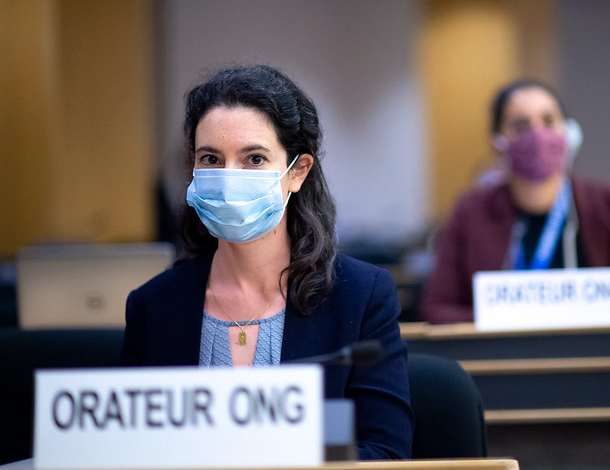Joint statement for HRC44 virtual meeting of the HRC President with NGOs
We acknowledge the challenges confronting OHCHR, member states and CSOs as we attempt to resume critical human rights work while taking seriously health risks associated with COVID-19. We appreciate the efforts made to overcome these challenges, including by increasing remote and online participation. We would like to bring to your attention some of the barriers to participation we have experienced in this session.

Delays in finalising the session dates and modalities, and subsequent changes in the programme of work, reduced the time CSOs had to prepare and engage meaningfully. This has a disproportionate impact on CSOs not based in Geneva, those based in different time zones and those with less capacity to monitor the live proceedings.
A number of organisations, including ourselves, experienced difficulties in meeting the technical specifications for uploading video statements. Increased technical support from OHCHR and flexibility in video and audio formats, and in allowing CSOs to change between video statements and in person delivery without losing speaking slots, could enable more organisations to make video statements now and for future sessions.
The cancelation of general debates this session as an ‘efficiency measure’ has restricted the few avenues for civil society to raise issues and be certain to get a speaking slot. This is especially problematic for a session in which civil society participation is so affected by COVID-19 measures and modalities. How ‘efficient’ and human rights-based can the Council really be if it restricts civil society contributions to its work?
Remote participation in informal negotiations has been another challenge, and dependent on the willingness of the core group to facilitate such participation (e.g. through Zoom as was the case for some informals), and on whether the UNOG phone and listen live systems were operational. Several informals were not live streamed despite being public meetings. Time zone differences also effectively exclude organizations located in Asia, the Pacific and the Americas, especially from informal negotiations which can only be listened to in real time (when possible). In addition, access to the resolution texts was not consistently ensured by core groups for those attending the informals in person and without access to e-delegate, CSOs participating remotely had no possibility of accessing the texts.
We call on the Secretariat to consider the following measures:
- Enable speakers to change the mode of statement delivery between video and in-person, after registration, without losing the speaking order.
- Provide technical support and more flexible format requirements for video statements
- Provide CSOs with access to e-delegates to enable access to resolution texts.
- Ensure all informals are live-streamed and allow for remote participation and monitoring by CSOs.
◾️ Mandate and allocate sufficient funding for the Secretariat to provide closed-captioning, sign language interpretation and other accessibility measures for all video statements and Council meetings as a system-wide measure, as noted in HRC Decision 19/119;
◾️ Reintroduce general debates in June 2021 and all other future HRC sessions.
